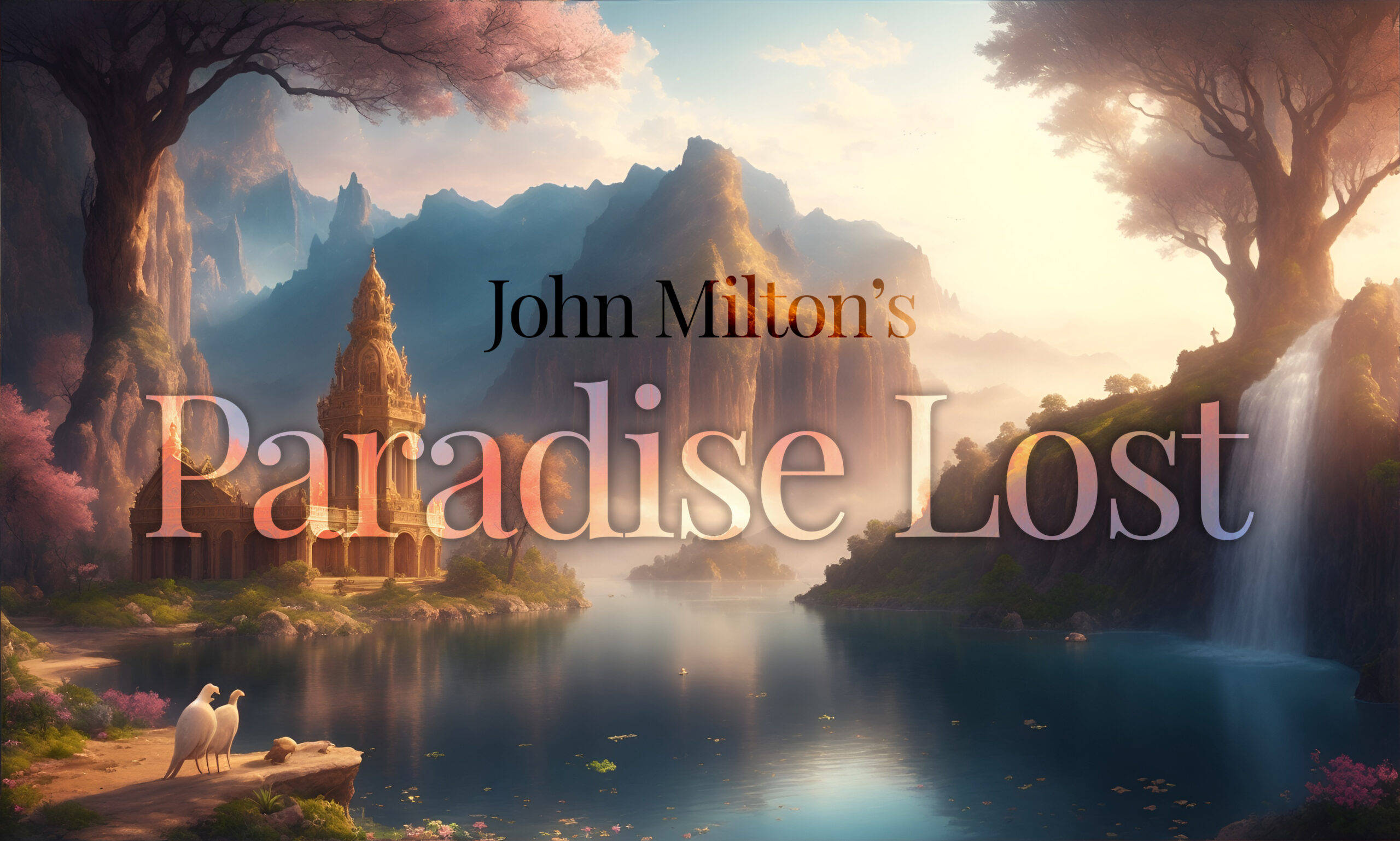Discuss the portrayal of good and evil in Paradise Lost. How does Milton present the dichotomy between the forces of heaven and hell? Analyze the characterization of Satan and the fallen angels, as well as the contrasting portrayal of God and the angelic hosts.

Portrayal of Good and Evil in Paradise Lost
In John Milton‘s epic poem Paradise Lost, the portrayal of good and evil is a central theme that permeates the narrative. Milton presents a stark dichotomy between the forces of heaven and hell, highlighting the contrasting nature of good and evil through the characterization of Satan and the fallen angels, as well as the portrayal of God and the angelic hosts. This exploration of good and evil serves to examine fundamental questions of morality, free will, and divine justice.
Milton’s characterization of Satan and the fallen angels embodies the essence of evil and rebellion against divine authority. Satan is depicted as a complex and compelling figure, possessing charismatic qualities that captivate and deceive. He is a fallen angel who resents his diminished state and seeks to establish his own dominion. Satan’s character is marked by his pride, ambition, and a refusal to submit to God’s will. Milton describes Satan as “an angel fallen” (Book I, line 124), emphasizing his fallen nature and the profound consequences of his rebellion.
Satan’s motivations are driven by his desire for power, glory, and revenge. He is consumed by envy and a burning ambition to rise above his fallen state. Milton portrays Satan as a master manipulator, using his rhetoric and persuasive abilities to rally his fellow fallen angels and inspire them to continue their rebellion against God. Satan’s famous soliloquy in Book I reveals his determination and his belief that “Better to reign in Hell than serve in Heaven” (line 263). This quote encapsulates Satan’s defiance and his willingness to endure eternal suffering rather than submit to God’s authority. Through Satan’s characterization, Milton explores the dangers of unchecked ambition and the destructive potential of pride.
The fallen angels, led by Satan, serve as a collective embodiment of evil. They embody qualities such as envy, jealousy, and hatred, which are in direct opposition to the virtues represented by the forces of heaven. Milton describes the fallen angels as “impious, unrepenting, unreformed, / Foreign from God, and stubborn to retain / Their wicked deeds” (Book I, lines 408-410). This depiction emphasizes their moral corruption and their obstinacy in clinging to their rebellious ways. The fallen angels become agents of chaos and destruction, wreaking havoc and spreading their dark influence.
In contrast to the forces of evil, Milton presents the forces of heaven, represented by God and the angelic hosts, as embodiments of goodness, righteousness, and divine order. God is portrayed as the epitome of goodness, wisdom, and justice. His authority is absolute, and His actions are guided by benevolence and mercy. Milton’s portrayal of God emphasizes His omniscience and omnipotence, as well as His ability to see the bigger picture beyond the immediate events of the narrative.
The angelic hosts, led by the archangels Gabriel and Michael, exemplify obedience and loyalty to God. They are portrayed as beings of light and beauty, emanating virtue and righteousness. Their actions are in accordance with God’s will, and they serve as protectors and messengers of divine truth. The angelic hosts are described as a unified force, working in harmony to uphold the divine order. Milton’s portrayal of the angelic hosts presents a contrast to the divided and corrupt nature of the fallen angels, emphasizing the triumph of good over evil.
The dichotomy between good and evil is further accentuated through the contrasting settings of Heaven and Hell. Heaven is depicted as a realm of divine light, purity, and order. It is described as a place of peace, harmony, and eternal bliss. In contrast, Hell is depicted as a realm of darkness, chaos, and suffering. The fiery lakes, burning mountains, and perpetual darkness evoke a sense of torment and despair. Through these contrasting settings, Milton emphasizes the stark difference between the forces of heaven and hell, and the consequences of aligning oneself with either side.
Milton’s exploration of good and evil in Paradise Lost raises profound philosophical and theological questions. He grapples with the problem of evil, the nature of free will, and the concept of divine justice. The characters and their actions reflect these philosophical inquiries. Satan’s rebellion and the fall of the angels demonstrate the existence of evil and the consequences of moral transgression. The portrayal of God’s justice and mercy highlights the complexities of divine judgment and the delicate balance between justice and forgiveness.
In conclusion, John Milton’s Paradise Lost presents a profound exploration of the dichotomy between good and evil. Through the contrasting characterization of Satan and the fallen angels, as well as the portrayal of God and the angelic hosts, Milton delves into the nature of morality, free will, and divine justice. The forces of heaven and hell symbolize opposing moral and spiritual realms, with the fallen angels embodying rebellion and corruption, while God and the angelic hosts represent righteousness and order. Milton’s examination of these contrasting forces invites readers to contemplate the nature of good and evil, the consequences of moral choices, and the ultimate triumph of divine justice.
*****
Read More: Questions and Answers from Paradise Lost by John Milton


